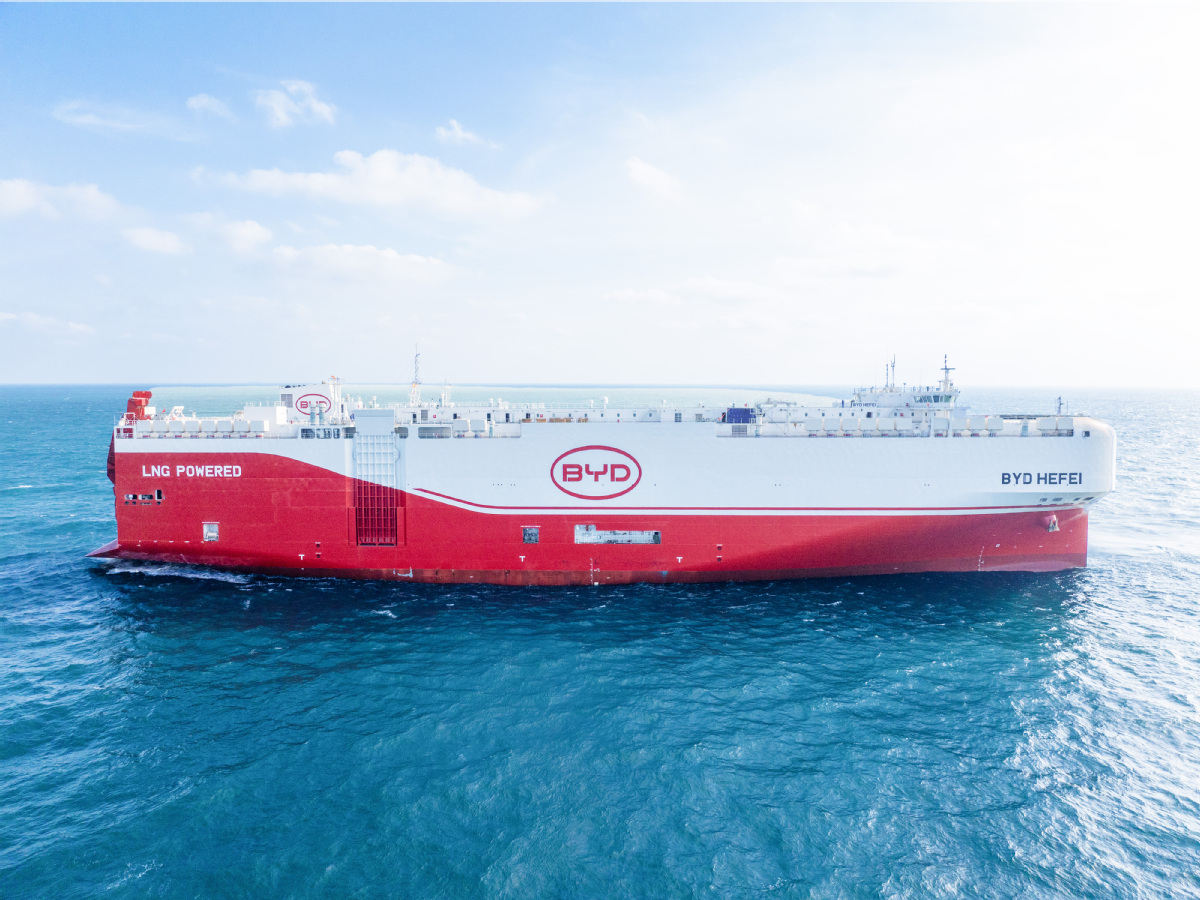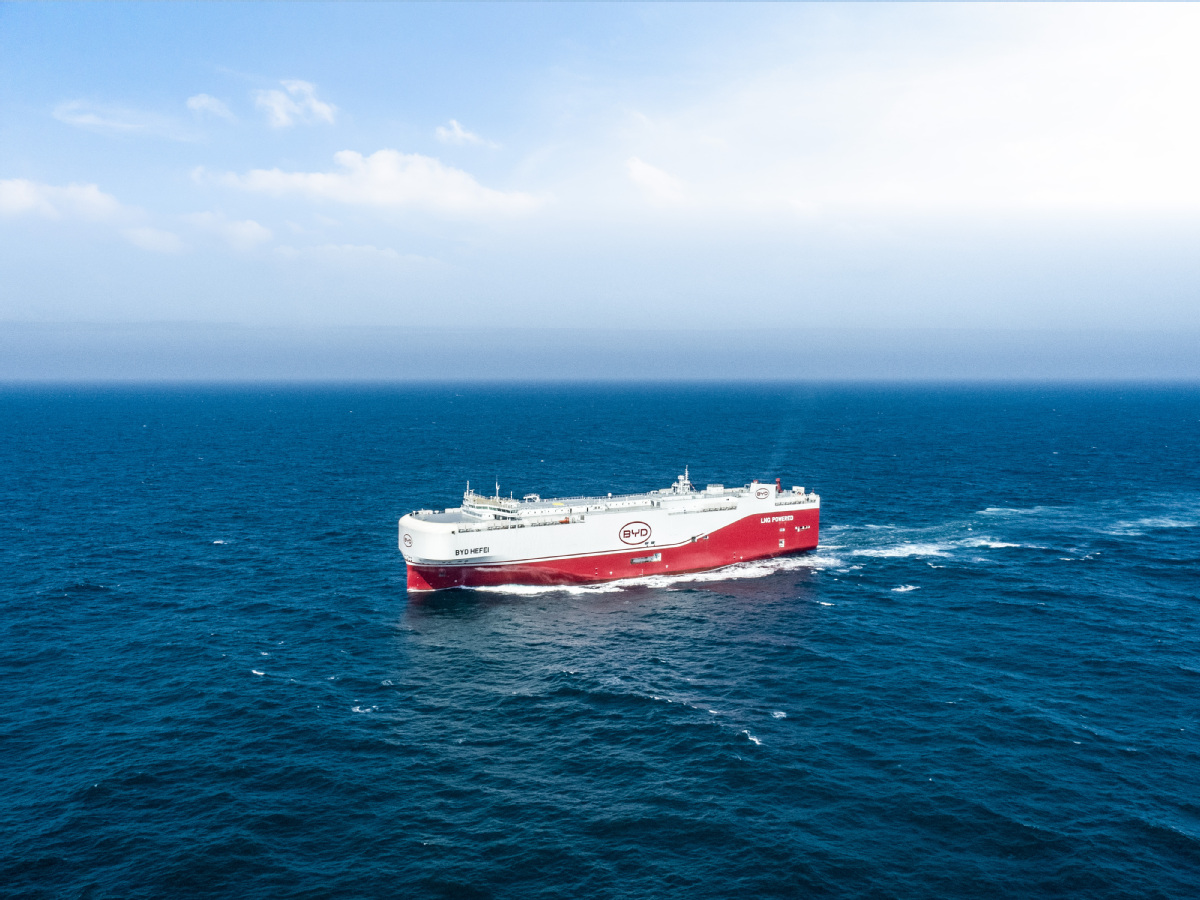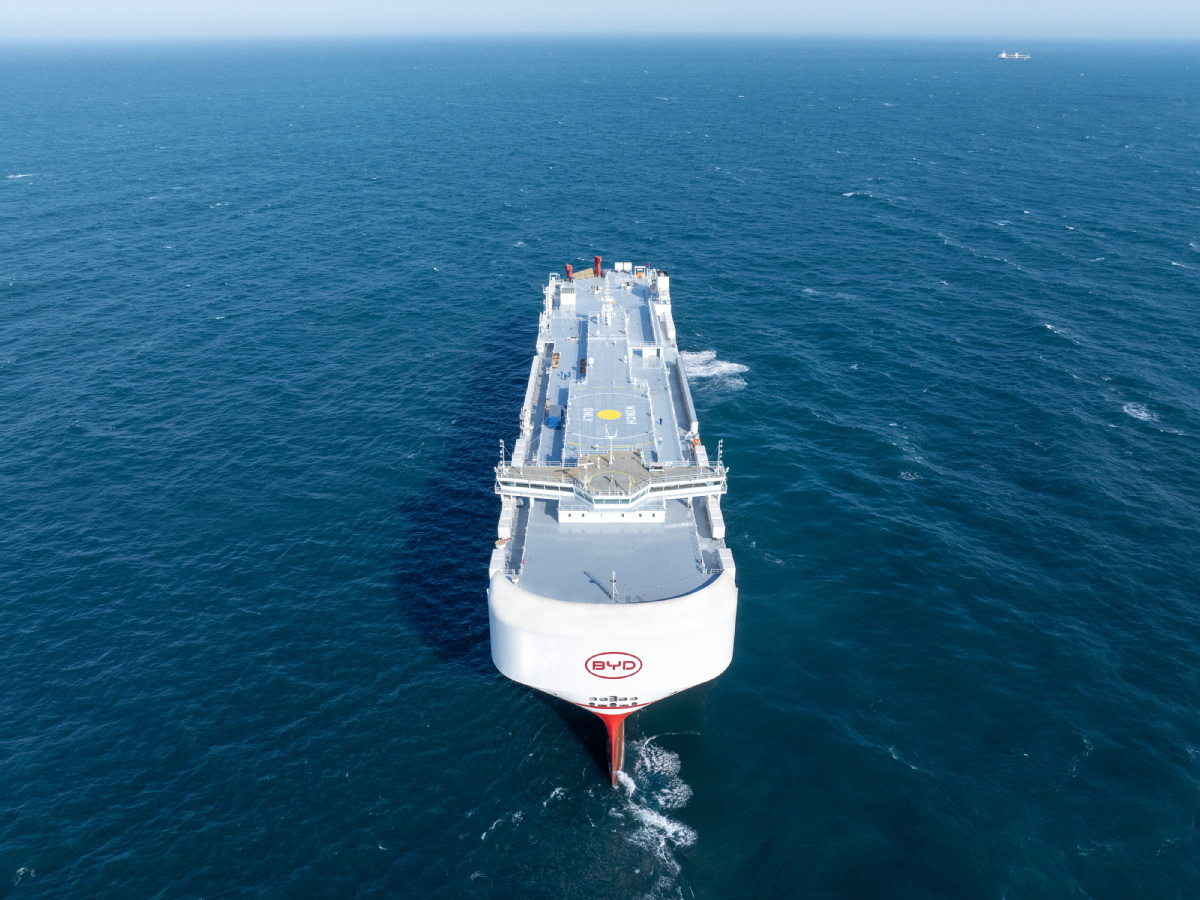
On Tuesday, a new dual-fuel pure car truck carrier (PCTC) built by Guangzhou Shipyard International (GSI) for BYD Group was delivered for use in Guangzhou's Nansha district. [Photo provided to chinadaily.com.cn]
A new dual-fuel pure car truck carrier (PCTC) built by Guangzhou Shipyard International (GSI) for BYD Group, one of the country's major new energy carmakers, was delivered for use in Guangzhou's Nansha district, Guangdong province, on Tuesday, providing new impetus for Chinese car brands to go global.
The 7,000-vehicle PCTC, named BYD HEFEI and equipped with a permanent magnet shaft generator, adopts a dual-fuel propulsion system and various energy-saving measures, according to a statement released by GSI on Tuesday.
The vessel is a green, intelligent, environmentally friendly and efficient automobile transport carrier, the statement said.

On Tuesday, a new dual-fuel pure car truck carrier (PCTC) built by Guangzhou Shipyard International (GSI) for BYD Group was delivered for use in Guangzhou's Nansha district. [Photo provided to chinadaily.com.cn]
BYD HEFEI is 199.9 meters long and has a molded width of 38 meters. The vessel can reach a speed of 18.5 knots, equivalent to about 35 kilometers per hour.
GSI has signed contracts with BYD to build two PCTCs of this type. This is the first one delivered, said the statement.
After being put into operation, it will enhance the guarantee capability of China's domestic automobile export transportation, it said.

On Tuesday, a new dual-fuel pure car truck carrier (PCTC) built by Guangzhou Shipyard International (GSI) for BYD Group was delivered for use in Guangzhou's Nansha district. [Photo provided to chinadaily.com.cn]
Located on Longxue Island at the mouth of the Pearl River, GSI is a subsidiary of China State Shipbuilding Corp and a Shanghai Stock Exchange-listed company. It has so far attracted nearly 40 orders for constructing PCTCs, maintaining its position as the world's top player in the PCTC market.
As of the end of 2024, GSI has delivered 12 LNG (liquefied natural gas) dual-fuel 7,000-vehicle PCTCs.